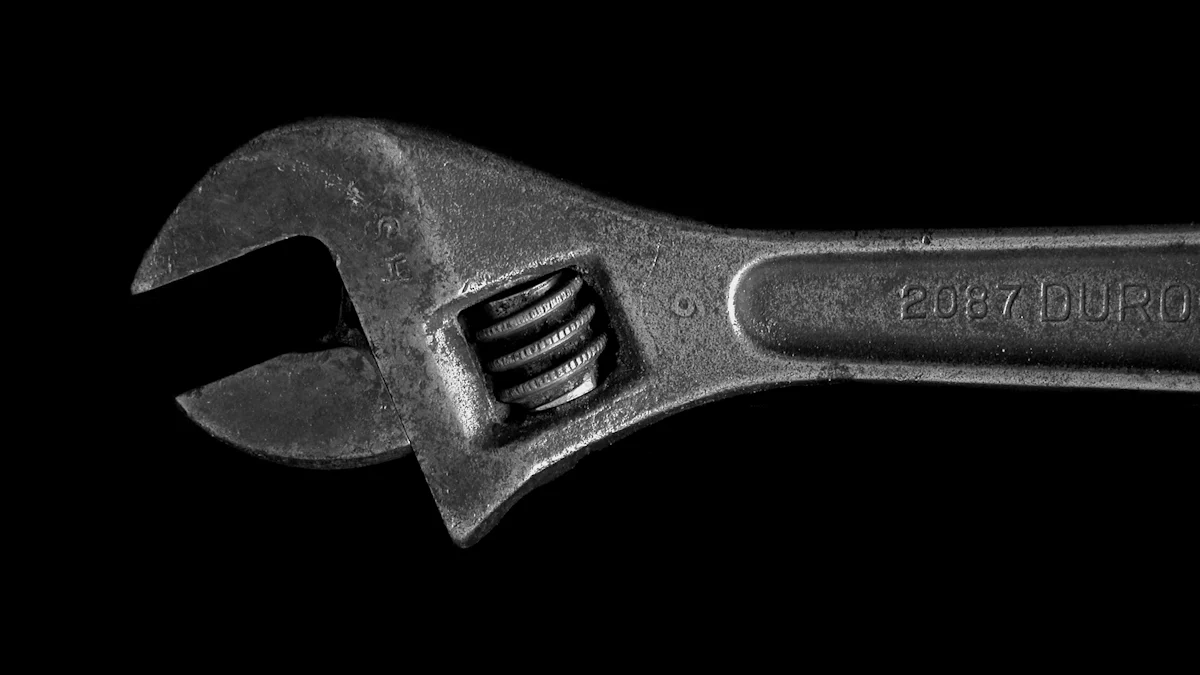
Exploring the Significance: The phrase ‘spanner in the works’ holds a unique place in the tapestry of idiomatic expressions. It symbolizes disruption and unexpected obstacles, painting a vivid picture of plans going awry.
Structural Overview: This blog embarks on a journey to dissect the origins, definition spanner, and cultural impacts of this intriguing phrase. Through a structured exploration, readers will unravel the layers of meaning behind this idiom.
Understanding Idiomatic Expressions: Delving into idioms like ‘spanner in the works’ is crucial for language comprehension. These expressions add color and depth to communication, offering insights into cultural nuances and linguistic creativity.
Definition and Origin

Definition of ‘Spanner’
A spanner is a versatile tool used to provide grip and mechanical advantage in turning objects like nuts and bolts. In American English, a spanner is referred to as an adjustable wrench, while outside North America, it is simply known as a ‘wrench.’
- The Industrial Revolution completely transformed the production of wrenches, introducing various forms such as screw-adjusted and lever types.
- Standard sizes for fasteners and spanners were established in 1825, enabling their universal use on different nuts and bolts.
Origin of the Phrase
The term ‘spanner’ originated from German roots where it was initially used for winding the spring of a wheel-lock firearm. This evolution led to its adoption as a specialized wrench in American English.
- The historical context of the phrase dates back to individuals adapting their principles to align with prevailing powers.
- The phrase’s meaning has evolved over time to symbolize hindering or disrupting plans unexpectedly.
Usage in Language
Common Usage
- Examples in sentences:
- A student who forgets their textbooks at home can be a spanner in the works for the teacher’s lesson plan.
- Forgetting your keys before leaving the house can throw a spanner in the works of your morning routine.
- Running out of ingredients while cooking dinner can definitely be a spanner in the works for a relaxing evening.
- Situational contexts:
- When someone unexpectedly cancels plans, it can act as a significant spanner in the works for those involved.
- In project management, sudden changes to deadlines or requirements often throw a spanner in the works for the entire team.
- Discovering an error right before submitting an important document can be a massive spanner in the works for professionals.
Cultural Impact
- Media references:
“She must get her ducks in a row before the start of her medical college.”
- Everyday conversations:
“Missing the train was actually a blessing in disguise as I just heard on the news that that train met with an accident about an hour ago.”
- The phrase ‘spanner in the works’ has seamlessly integrated into everyday language, reflecting unexpected disruptions and obstacles encountered by individuals across various scenarios.
Similar Idioms

Related Phrases
‘Monkey wrench’
- A monkey wrench is a tool similar to a spanner but with a different design, often used in plumbing and mechanical work.
- The term ‘monkey wrench’ is commonly used in American English to describe an unexpected obstacle or disruption in plans.
- Unlike the spanner, the monkey wrench has a long handle and adjustable jaws for gripping various sizes of nuts and bolts.
‘Throw a wrench’
- When someone decides to throw a wrench into the works, they are intentionally causing chaos or interference in a situation.
- This phrase is synonymous with disrupting plans unexpectedly, much like throwing an actual tool into machinery to stop its operation.
- While similar to ‘throw a spanner,’ this expression emphasizes deliberate interference rather than accidental disruption.
Comparison and Contrast
Differences in usage
- The phrase ‘spanner in the works‘ refers to causing disruption or interference with the smooth running of something, while ‘throw a spanner in the works‘ is more commonly used and has a similar meaning.
- On the other hand, ‘throw a monkey wrench in the works‘ is more deliberately disruptive compared to ‘throw a spanner in the works.’
Similarities in meaning
- Both ‘spanner in the works‘ and ‘throw a monkey wrench in the works‘ convey unexpected obstacles or disruptions that hinder progress.
- While each phrase may have subtle differences in usage, they share the common theme of introducing complications into plans or processes.
- Recap of the phrase’s definition and origin:
- The term ‘spanner’ originated from German roots, evolving into a tool for applying torque to objects.
- Initially used in firearm mechanisms, the spanner’s utility expanded during the Industrial Revolution.
- Summary of its usage and cultural impact:
- The phrase ‘spanner in the works’ symbolizes unexpected disruptions in plans or processes.
- Its integration into everyday language reflects universal experiences of obstacles hindering progress.
- Importance of idiomatic expressions in language:
Idioms are symbolic expressions that enrich communication, offering insights into cultural nuances and linguistic creativity. Understanding these expressions is crucial for effective communication and speaking like a native speaker.
